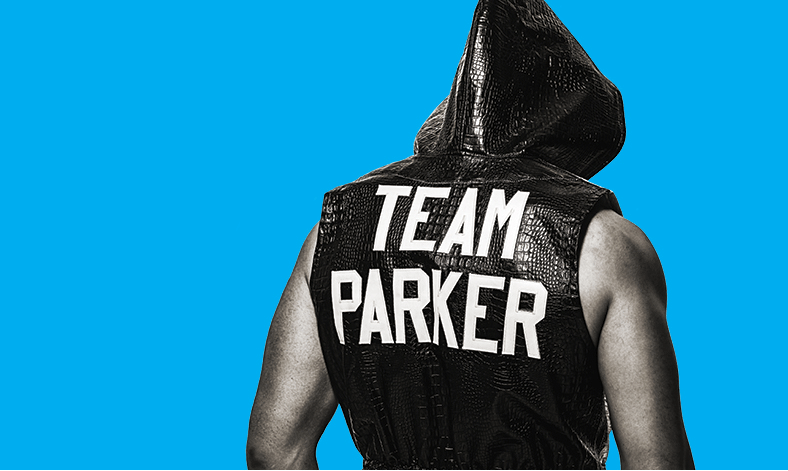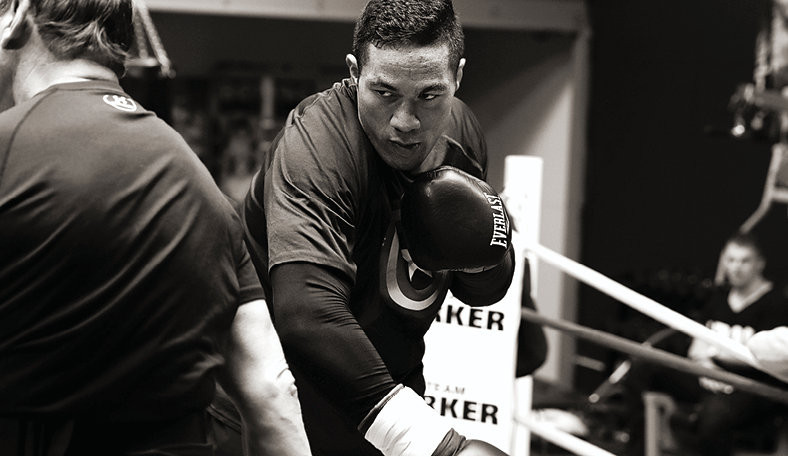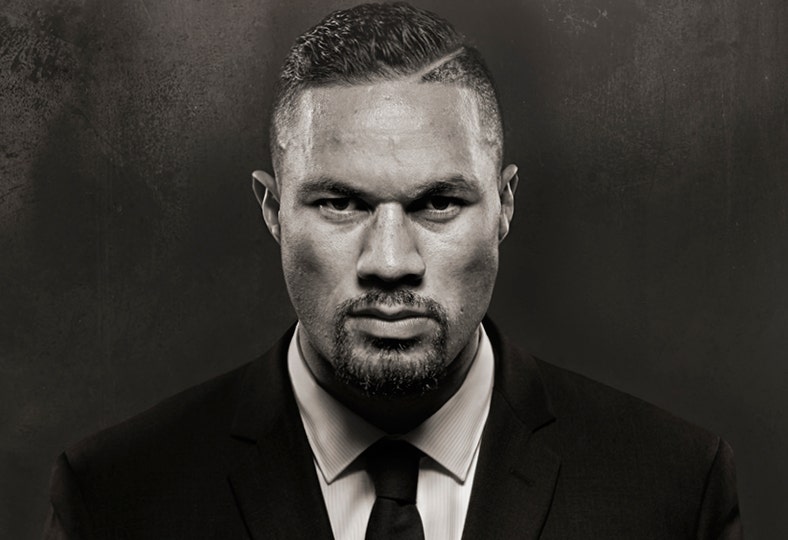Earlier this year, over the course of three months, reporter Don Rowe trailed New Zealand boxer Joseph Parker as he ground away at his dream of becoming world heavyweight champion. Rowe attended training sessions, press events and two fights, and spent time with Parker’s family to gather material for what would become a 16-page cover story for the new issue of 1972. We asked him about that journey.
1972: It's pretty rare to be granted loads of access to elite sportspeople. What did it feel like to be in the inner circle, playing Street Fighter in the hotel room etc?
DR: That’s right, particularly when you’re so close to a really crucial moment in an athlete's career. I felt incredibly privileged and also like I was about to receive a phone call saying it was all a joke and who did I think I was, presuming to be so close to the action. It made me pay extra close attention, though, because I knew how fortunate we were to be there at all. I didn’t want to take anything for granted.
1972: How much did you know about boxing before you started this story, and what did you know about Joseph Parker?
DR: I’ve been involved in martial arts for nearly 10 years and have competed internationally as a kickboxer, so I had a decent understanding of combat sports as well as the history of heavyweight boxing, or at least my dad’s interpretation of it. I knew less about Parker personally but I’d seen a lot of his fights and was super excited to get a closer look at how exactly one goes about chasing down a title.

1972: Did you find yourself swept up by the aspirations that drive his team? Are you now 100% Team Parker?
DR: It wasn’t so much their aspirations that got me on-side, but more how much of a good dude Joseph is. He really couldn’t be any cooler and I ended up just communicating with him directly rather than going through a handler or his assistant, which made everybody’s life so much easier.
1972: Boxing has a long history of attracting very literary writers, like Joyce Carol Oates, Norman Mailer, Dashiell Hammett, Damon Runyon etc. Had you read any great boxing writing?
DR: I read The Fight by Norman Mailer before writing the story, and I hope some of the action scenes at least approximate some of what he was able to do. I think it’s important that writers don’t smother all the grit out of boxing with their own hyperbole and stylistic flair, though - it’s pretty rich to try and describe all the drama of a fight if you’ve never been in one. It’d be like describing swimming without ever getting wet.
1972: What's your relationship with Parker like now? Did you become close at all?
DR: I wouldn’t say we got close in the sense that we’re exchanging texts or anything, but we definitely got on well enough that I don’t feel my presence was detrimental to his training or preparation.
1972: Parker strikes me as a consummate gentleman with old-school values (working hard, staying humble, not showing off) in a sport that's famously infested with snakes, crooks and braggarts. Do you think his personality is in some ways at odds with the sport?
DR: Absolutely. Boxing attracts all manner of knaves and rogues, but Joseph is just a straight-up good dude. I think a lot of that is down to his parents. Joseph owes Sala and Dempsey a lot and he’s well aware of it. He said something to the effect of ‘it’s a blessing to be able to bless their lives’, and I don’t think he was being flippant.

1972: At one point, you quote Kevin Barry saying that Joseph's media obligations use up energy that he needs to save for the ring. As a journalist, how do you feel about that?
DR: I’m sure it does, and it probably made me a little more hesitant to get in the way than I could have been. Preparing for a fight, especially one as important as the Takam bout, is one of the hardest things a human can do. Everything has to be perfect, and interrupting training to go and monkey about for Burger King is a huge compromise for Joseph and Kevin.
But there are realities to fight promotion and it’s not enough to just be good at a bit of fisticuffs anymore. Commercial responsibilities have to be taken into consideration and there are benefits that balance the obvious downsides of media obligations.
1972: How do you think he'll fare against Dimitrenko on October 1? Anything we should watch out for?
DR: It’s hard to say. I think Dimitrenko is a step down from Takam in terms of overall ability, but he presents very different risks, too. When you’re dealing with a guy who’s 2m tall and over 100kg, every punch has the ability to put you to sleep, and landing your own shots is that much more difficult. It will be a fantastic indicator of how an eventual Parker vs Joshua fight could go, and I look forward to seeing how Parker deals with the much bigger man - his last tall opponent was out of there in the second round.

